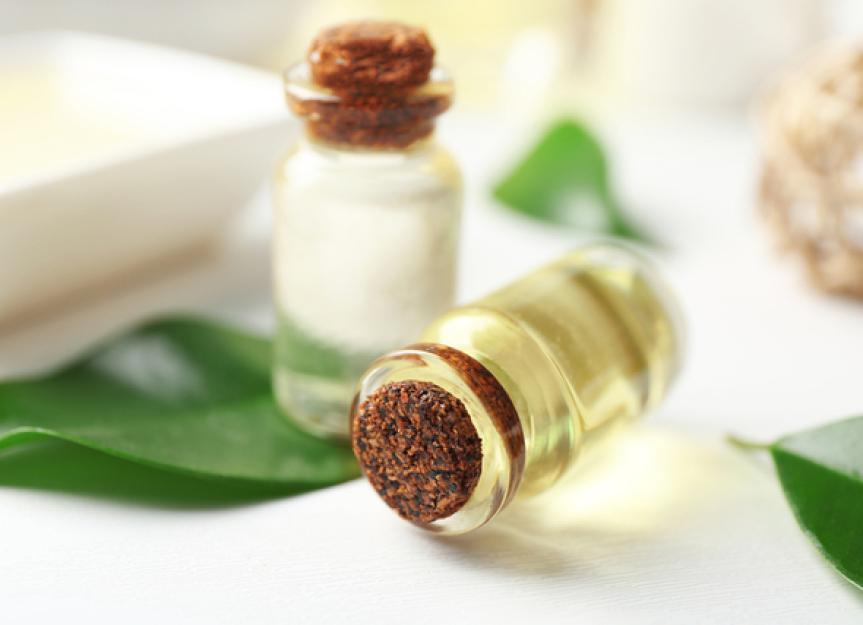Fleas can make our pets uncomfortable and itchy, but there are various ways to protect them. Collars, topical treatments, and chewable tablets are commonly used preventatives that can keep fleas at bay for up to 12 weeks. However, some pet parents prefer natural remedies, such as tea tree oil, for flea control. It is important to note that tea tree oil can be toxic for pets if used improperly or ingested. To ensure the safety of your feline friend, it is crucial to understand how to properly dilute tea tree oil for cats.
Is Tea Tree Oil Safe as a Topical Flea Treatment?
When it comes to flea treatments, it is generally advisable to use commercially available products that have been tested for safety and efficacy. These products are proven to be effective in preventing and killing fleas. On the other hand, essential oils like tea tree, eucalyptus, and citronella are not regulated or tested for safety and efficacy. This means that the contents of the bottle may not be accurately labeled, and there is no guarantee that they will work effectively.
Can Tea Tree Oil Kill and Repel Fleas?
Tea tree oil can indeed kill and repel fleas when used safely and in the correct dilution. However, it is important to note that tea tree oil is considered “especially risky” by the Merck Veterinary Manual. This is due to the difficulty in properly diluting tea tree oil at home. Commercially available pet formulas typically contain only 0.1 to 1 percent tea tree oil. These products are formulated to ensure even distribution of the oil, reducing the risk of toxicity to pets. However, if your cat or dog ingests an undiluted or improperly diluted tea tree oil, they can become very sick.
Aren’t Topical Flea Products More Toxic Than Tea Tree Oil?
Most topical flea products recommended by veterinarians contain chemicals that specifically target molecules found in insects but not in mammals. This makes them safe to use on pets and effective at killing fleas in small doses applied to the skin or ingested. Tea tree oil falls into a different category. It can be toxic to both pets and fleas, even though it may be safe for humans when used on the skin. The dose required to kill all fleas could potentially be fatal to your cat. Commercial flea treatments also often contain chemicals that prevent the development of the next generation of fleas, ensuring long-term flea control.
Safer Alternatives for Repelling Fleas
If you’re looking for safer alternatives to tea tree oil, one option is diatomaceous earth. This natural remedy is made from fossilized algae and works by creating holes in bugs like fleas, cockroaches, snails, and certain types of worms. Diatomaceous earth has been used in vegetable gardens to deter pests and is even consumed by horses and livestock to treat intestinal worms. While it is safe to use on pets in specific quantities, it is important to consult with a veterinarian or physician before administering it.
Frequently Asked Questions
Q: Can I use tea tree oil on my cat without diluting it?
A: No, undiluted tea tree oil can be toxic to cats. It is essential to dilute it properly before using it on your pet.
Q: How should I dilute tea tree oil for my cat?
A: It is recommended to use a commercial pet formula that contains a safe concentration of tea tree oil. This ensures proper dilution and reduces the risk of toxicity to your cat.
Q: What are the signs of tea tree oil poisoning in cats?
A: Symptoms of tea tree oil poisoning in cats may include vomiting, weakness, difficulty walking, tremors, and even coma. If you suspect your cat has been exposed to tea tree oil, contact your veterinarian immediately.
Q: Can I use tea tree oil on my dog?
A: While tea tree oil can be used on dogs when properly diluted, it is still important to exercise caution. Dogs may have different sensitivities and reactions to tea tree oil compared to cats.
Q: Are there any other natural remedies for repelling fleas?
A: Yes, there are several natural remedies that can help repel fleas, such as lavender oil, neem oil, and apple cider vinegar. However, it is crucial to research and consult with a veterinarian before using any natural remedies on your pets.
Conclusion
Tea tree oil can be an effective natural remedy for repelling and killing fleas when used safely and in the correct dilution. However, due to the risk of toxicity, it is advisable to consult with your veterinarian before using tea tree oil on your cat. They can provide guidance on the appropriate dilution and recommend safer alternatives if necessary. Remember, the health and well-being of your furry friend should always be the top priority. Visit Pawsoha for more pet care tips and advice.
Keywords: tea tree oil, dilute, cats, topical flea treatment, safety, efficacy, toxic, alternatives, repelling fleas, dilution, commercial pet formulas, diatomaceous earth, natural remedies, toxicity, poisoning.

